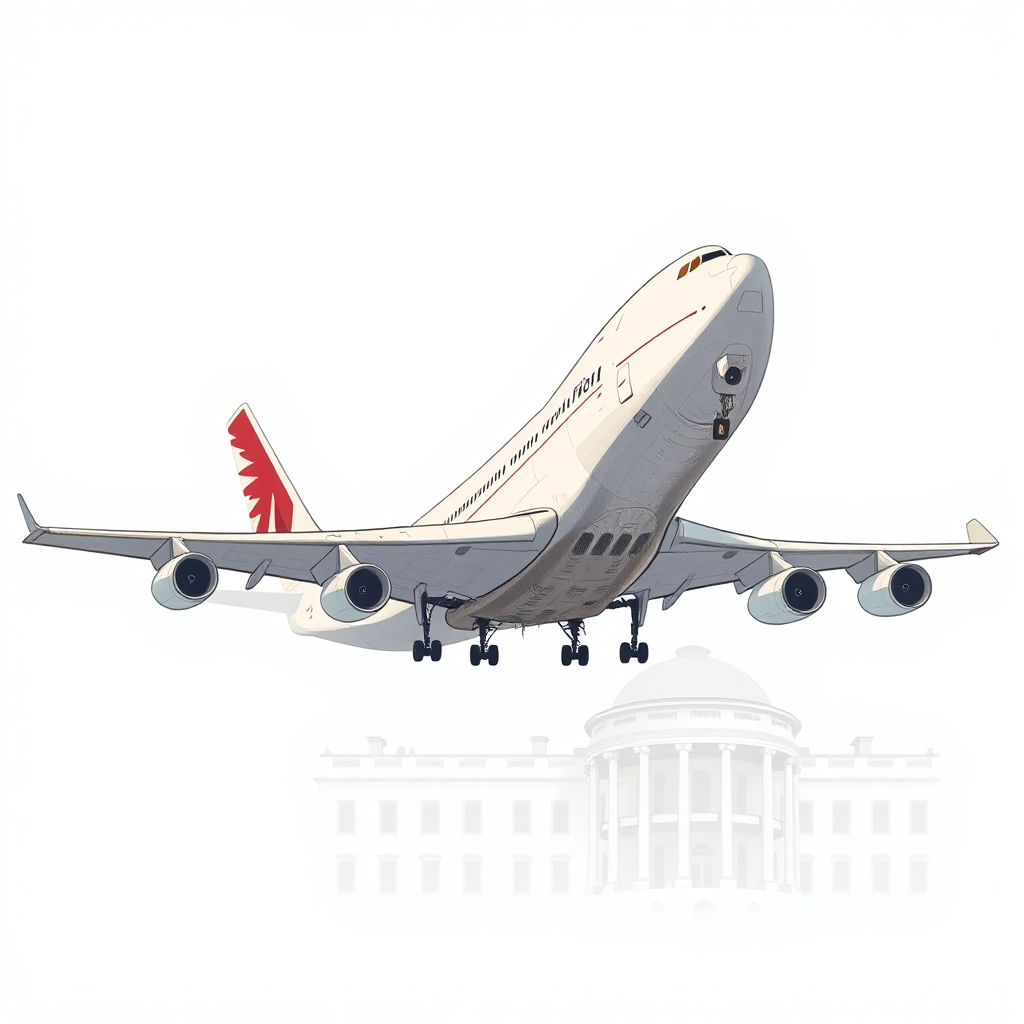Qatar’s Gift to Trump: Clever Disposal Strategy?

Qatar appears to have strategically offloaded a costly and increasingly obsolete Boeing 747 jumbo jet onto former President Donald Trump, according to aviation experts. For five years, the Qatari royal family struggled to find a buyer for one of their three remaining “flying palaces,” ultimately presenting it as a gift to the U.S. president. This move, described by one consultant as a “creative disposal strategy,” effectively solved a significant financial burden while potentially securing political favor.
The decision comes as airlines worldwide retire the 747 due to high operating and maintenance costs, and the need for lengthy runways. Qatar, like many nations, is transitioning to smaller, more efficient aircraft for official travel. Linus Bauer, managing director of aviation consultancy BAA & Partners, suggests the gift signals a shift away from the extravagant displays of geopolitical power once symbolized by these massive jets.
Selling the aircraft proved difficult. The market for such planes is limited, and converting it into a freighter would be prohibitively expensive, requiring extensive structural modifications. While the 747-8 remains popular as a cargo plane, Qatar’s jet was specifically configured for long-range VIP travel with a limited number of passengers.
Aerospace consultant Richard Aboulafia of Aerodynamic Advisory points out the inherent security risks associated with such large, conspicuous aircraft, calling them “big targets.” He expressed disbelief that any experienced Air Force officer would endorse repurposing the jet as an airborne command center, estimating such a project would take at least five years, even with relaxed security protocols.
Qatar previously gifted a 747-8 to Turkish President Recep Tayyip Erdogan in 2018 and transferred another older model to an asset management firm. Despite the gift to Trump, the Qatari royal family maintains a substantial aircraft fleet, including access to Qatar Airways’ executive jets. Business aviation consultant Brian Foley believes the loss of the 747 won’t significantly impact their capabilities.
While presented as a gesture of goodwill, the transfer appears to be a pragmatic solution to a costly problem. It’s a telling sign of changing priorities, demonstrating a move away from ostentatious displays of wealth and towards more discreet and efficient modes of travel for world leaders. The situation highlights the financial realities facing nations maintaining these aging giants, and the lengths they’ll go to avoid the substantial costs associated with their upkeep.